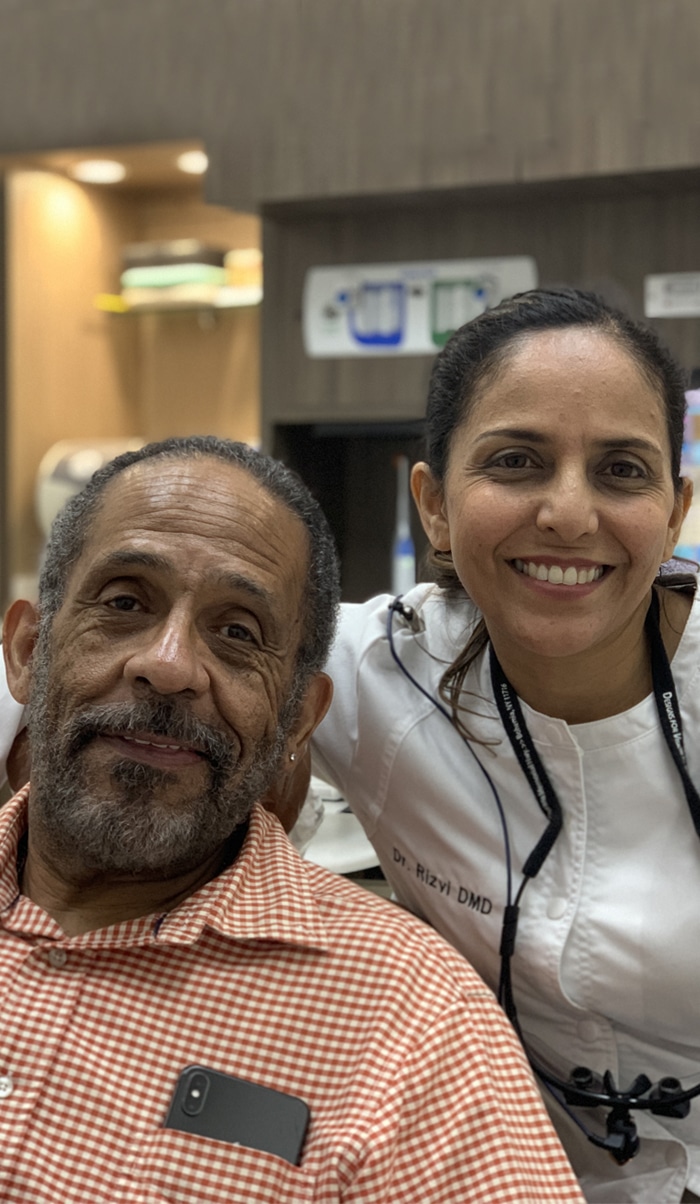ONLINE SCHEDULING AND VIRTUAL CONSULTS AVAILABLE
The Best Adult Dentist In Coral Springs

It's An Infection.
Our mouths are home to millions of bacteria—many of them harmless or even helpful. However, some harmful bacteria can damage both the hard and soft tissues in the mouth. Like all living organisms, these bacteria need energy to survive, and they prefer sugars, using simple carbohydrates from our diet as fuel.
As they generate energy, they also produce waste. The acidic byproducts of this process cling to the teeth, eroding enamel and forming cavities. Some bacteria release toxic substances that irritate the gums and break down the bone supporting the teeth. This type of infection—known as periodontal disease—is the leading cause of tooth loss and the need for dentures.
Unlike most infections that can be treated with antibiotics, oral bacteria require a different strategy. Routine checkups help us detect new cavities early, and regular cleanings remove hardened plaque that harbors harmful bacteria. Fluoride treatments strengthen enamel, and for high-risk patients, we offer tailored preventive care plans.
The impact of oral infections goes beyond the mouth. Research increasingly shows how oral health is closely linked to overall health. Bacteria from bleeding gums can enter the bloodstream and travel to delicate vessels in the heart and brain, where they may cause inflammation and blockages—leading to heart attacks or strokes.
This same bacterial spread is also being linked to conditions such as arthritis, diabetes, and certain cancers. At My Dentist For Life of Coral Springs, we now understand more than ever how maintaining a healthy mouth can significantly improve your total well-being.
A Few Tips For Maintaining A Healthy Mouth
Brush and floss twice daily: Building consistent habits is key to removing sticky, bacteria-filled plaque—the starting point for cavities, gum disease, and other health issues. If traditional flossing isn’t your thing, try alternatives like interdental brushes, toothpicks, or a Waterpik.
Brush for at least two minutes each time: Two minutes may feel long, but it makes a big difference. An electric toothbrush with a built-in timer or simply setting one on your phone can help ensure you brush thoroughly.
Rinse your toothbrush well: After each use, rinse your toothbrush thoroughly to prevent bacteria from lingering and making their way back into your mouth.
Limit sugary drinks, starchy snacks, and desserts: These foods feed harmful bacteria, even with good brushing and flossing. Moderation is key, and try to avoid snacking between meals to reduce the risk of decay.
Drink water after meals: Swishing with water helps rinse away leftover food particles and promotes hydration—a win-win for your teeth and your health.
Avoid giving sugary drinks or milk in bottles before bedtime: This can lead to prolonged exposure to sugars, increasing the risk of cavities, especially in children.
Treat cavities promptly: Cavities often don’t hurt until they become serious. Addressing them early helps prevent bigger problems down the road—because a small cavity rarely stays small.
Visit your dentist every six months: Regular dental checkups significantly reduce the chances of major issues. Patients who prioritize preventive care often spend less on dental treatment over time than those who only come in during emergencies.


